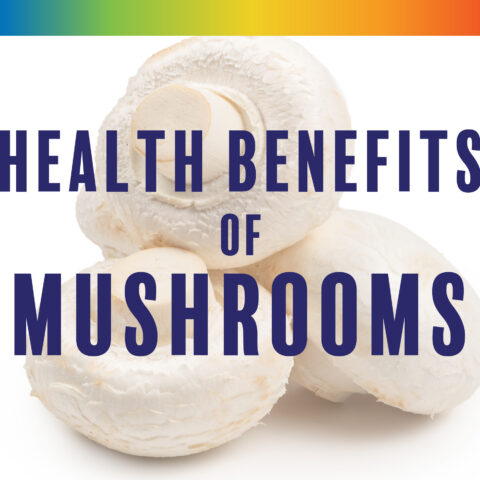Which Diet Best Supports Heart Health?

“A healthy diet and lifestyle,” says the American Heart Association (AHA), “are your best weapons in the fight against heart disease.”1 But does the AHA’s recommended diet protect against heart disease better than other diets, particularly the Paleo Diet?
In the first controlled clinical study of The Paleo Diet®, published in Nutrition Research, researchers from Eastern Michigan University (EMU) compared these two diets. They found that adherence to the Paleo diet for four months significantly decreases total cholesterol (TC), LDL cholesterol, and triglycerides, while increasing HDL cholesterol, compared to four months on the AHA’s recommended diet.
The AHA’s diet includes large amounts of whole grains and dairy, two food groups the Paleo diet, of course, eliminates. The AHA also discourages saturated fat, claiming, “Eating foods that contain saturated fats raises the level of cholesterol in your blood.”2 The current study, however, adds to a growing body of evidence suggesting saturated fat is heart healthy, whereas high-carbohydrate grain-based diets may worsen cardiovascular disease markers.
The EMU researchers recruited 10 men and 10 women between the ages of 40 and 62. Each had hypercholesterolemia (high cholesterol levels) and none were taking cholesterol-reducing medication. Each participant followed the AHA’s recommend diet for 4 months, followed by 4 months on the Paleo Diet. Compared to baseline, TC decreased slightly (3%) following the AHA diet, followed by a “very large” 20% decrease from AHA to Paleo.3 Similarly, LDL reductions were “small” (3%) from baseline to AHA, followed by a “very large” 36% decrease from AHA to Paleo.
Weight loss occurred on both diets but was significantly better on The Paleo Diet. For men, the AHA diet reduced mean body weight by 3.3 ± 2.7 kg, relative to baseline (P < .001), with an additional 10.4 ± 4.4 kg reduction following 4 months on the Paleo diet. For women, no significant weight reductions followed the AHA diet, but the Paleo diet resulted in significant 8.1 ± 5.9 kg reductions.
This study follows up on previous studies demonstrating improved lipid profiles based on Paleo diet adherence, including a 2009 study showing significant improvements after just 10 days on Paleo and another 2009 study showing significant improvements for type-2 diabetes patients following 3 months on Paleo. 4, 5 The current study, however, does have some limitations, which the researchers openly acknowledge, including a small sample size (20 participants) and the study’s racial homogeneity (predominantly white). Additionally, the study did not allow for order bias, meaning all participants first cycled through the AHA diet, followed by the Paleo diet.
Additionally, it would have also been interesting to see each diet’s impact on both small-particle and large-particle LDL. Measurements of total LDL can be misleading because small-particle LDL accumulates within the arterial walls, whereas large-particle LDL floats through the bloodstream and is generally considered benign.6 Saturated fat has been shown to change small-particle LDL into large-particle LDL.7 In this study, the Paleo diet decreased LDL cholesterol levels more than the AHA diet, but the study tells us nothing about changes in the small- and large-particle LDL.
The AHA’s recommended diet appears to be relatively ineffective for treating hypercholesterolemia. Besides encouraging an AHA-type diet, typical allopathic treatments for hypercholesterolemia often include statin drugs. Statins may reduce cholesterol favorably, but have numerous potential side effects, including myopathy, nausea, neuropathy, elevated liver enzymes, and increased risk of new-onset diabetes.8,9
With no risks and significant benefits, The Paleo Diet seems to be the smartest approach to reversing hypercholesterolemia and generally improving heart health. You have nothing to lose and everything to gain going Paleo.
References
[1] Healthy Eating. American Heart Association. Retrieved from //www.heart.org/HEARTORG/GettingHealthy/NutritionCenter/HealthyEating/Healthy-Eating_UCM_310436_SubHomePage.jsp
[2] Saturated Fats. American Heart Association. Retrieved from //www.heart.org/HEARTORG/GettingHealthy/NutritionCenter/HealthyEating/Saturated-Fats_UCM_301110_Article.jsp
[3] Pastore, RL, et al. (June 2015). Paleolithic nutrition improves plasma lipid concentrations of hypercholesterolemic adults to a greater extent than traditional heart-healthy dietary recommendations. Nutrition Research, 35(6). Retrieved from //www.nrjournal.com/article/S0271-5317%2815%2900097-4/abstract
[4] Frassetto, LA, et al. (February 2009). Metabolic and physiologic improvements from consuming a paleolithic, hunter-gatherer type diet. European Journal of Clinical Nutrition, 63. Retrieved from //www.nature.com/ejcn/journal/v63/n8/full/ejcn20094a.html
[5] Jonsson, T, et al. (July 2009). Beneficial effects of a Paleolithic diet on cardiovascular risk factors in type 2 diabetes: a randomized cross-over pilot study. Cardiovascular Diabetology, 8(35). Retrieved from //www.cardiab.com/content/8/1/35
[6] Tribble, DL, et al. (April 1992). Variations in oxidative susceptibility among six low density lipoprotein subfractions of differing density and particle size. Atherosclerosis, 93(3). Retrieved from //www.ncbi.nlm.nih.gov/pubmed/1590824
[7] Campos, H, et al. (February 1992). Low density lipoprotein particle size and coronary artery disease. Arteriosclerosis and Thrombosis, 12(2). Retrieved from //www.ncbi.nlm.nih.gov/pubmed/1543692#
[8] Zhang, H, et al. (April 2013). Discontinuation of Statins in Routine Care Settings: A Cohort Study. Annals of Internal Medicine, 158(7). Retrieved from //annals.org/article.aspx?articleid=1671715
[9] Carter, AA, et al. (May 2013). Risk of incident diabetes among patients treated with statins: population based study. British Medical Journal, 346. Retrieved from //www.bmj.com/content/346/bmj.f2610
Christopher Clark
Christopher Clark is an entrepreneur, food writer, and business owner with years of experience with nutrition.
More About The Author




